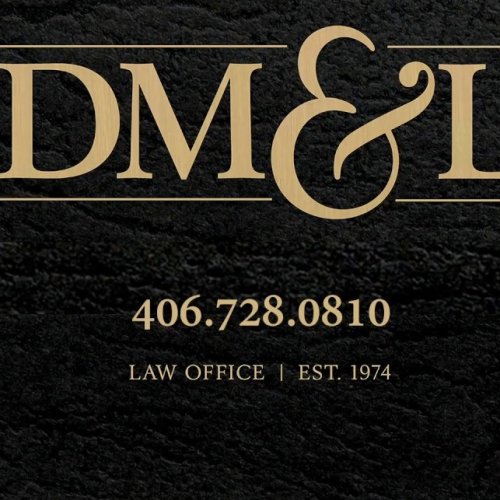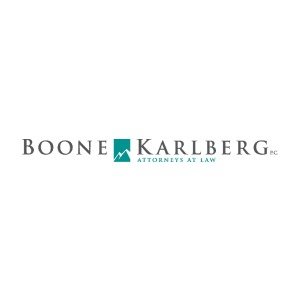Best Conveyancing Lawyers in Montana
Share your needs with us, get contacted by law firms.
Free. Takes 2 min.
Free Guide to Hiring a Real Estate Lawyer
Or refine your search by selecting a city:
List of the best lawyers in Montana, United States
About Conveyancing Law in Montana, United States
Conveyancing is the legal process of transferring property ownership from one party to another. In Montana, as in other states, real estate transactions involve several steps to ensure the valid and lawful transfer of title. The process includes preparing and reviewing legal documents, conducting title searches, addressing liens or encumbrances, and filing records with county offices. Understanding the nuances of Montana property law is crucial for buyers, sellers, and investors to avoid problems during or after a transaction.
Why You May Need a Lawyer
Several scenarios in Montana may require the assistance of a lawyer with expertise in conveyancing. Common reasons include:
- Drafting or reviewing purchase and sale agreements for accuracy and legal sufficiency
- Identifying and resolving title defects, easements, or outstanding liens
- Explaining the legal implications of covenants, conditions, and restrictions associated with certain properties
- Guiding clients through disclosure requirements and ensuring full compliance
- Managing transactions involving multiple parties, trusts, or estates
- Assisting with for sale by owner (FSBO) transactions to protect both buyer and seller
- Handling disputes or litigation arising from property transfers
Local Laws Overview
Montana's property and conveyancing laws are primarily governed by state statutes and local county regulations. Some key aspects include:
- The use of deeds (such as warranty, special warranty, and quitclaim deeds) is standard for transferring property ownership in Montana. Each type provides different levels of protection regarding title guarantees.
- Real estate transactions typically require a written contract to be enforceable. Oral agreements are not sufficient for most property conveyances.
- Title searches are performed to confirm a seller's right to transfer the property and reveal any encumbrances or liens that must be disclosed and resolved before closing.
- Montana is a non-disclosure state for real estate sales prices, but certain disclosures (such as the Seller Property Disclosure Statement) are required for residential properties.
- All original documents relating to conveyance, such as deeds, must be recorded with the appropriate County Clerk and Recorder.
- Property taxes, easements, water rights, and access agreements can greatly impact conveyancing and require careful review during the process.
Frequently Asked Questions
What is conveyancing?
Conveyancing is the legal term for the process of preparing, executing, and recording documents to transfer property ownership from one party to another. It ensures the transfer is lawful and protects both buyer and seller.
Is it required to use a lawyer in Montana for property transactions?
Montana does not legally require buyers or sellers to use a lawyer in every real estate transaction. However, legal advice is strongly recommended to avoid costly mistakes or disputes.
What kind of deed should I use to transfer property?
The appropriate deed depends on the level of warranty or protection you want to provide or receive. Warranty deeds offer the highest protection, while quitclaim deeds offer no guarantees regarding title.
How do I confirm the seller has clear title to the property?
A title search is conducted to check the property's history for liens, claims, or disputes. Title insurance is often purchased to protect against defects not discovered during the search.
What disclosures are required from the seller in Montana?
Sellers of residential property must complete a Property Disclosure Statement, outlining known issues or defects. There are also federal lead-based paint disclosures for homes built before 1978.
Can I buy or sell property without a real estate agent?
Yes, Montana allows for sale by owner transactions. However, it is advisable to consult with a lawyer to ensure all legal requirements are satisfied.
How is property ownership recorded in Montana?
Ownership is established and documented by recording the deed with the County Clerk and Recorder's office in the county where the property is located.
What are common problems in conveyancing transactions?
Common issues include undisclosed liens, boundary disputes, errors in legal descriptions, and unrecorded easements. Legal advice or a title company can help prevent these problems.
What happens if a property has an unresolved lien at closing?
Any liens or encumbrances must be resolved before or at closing. Otherwise, the buyer could assume responsibility for those debts or obligations.
How do I protect my interests when buying property in Montana?
Hire a lawyer or a trusted title company, perform a title search, review all documents thoroughly, and purchase title insurance to safeguard your investment.
Additional Resources
Individuals seeking information or assistance with conveyancing in Montana can refer to the following resources:
- Montana State Bar Association - Offers lawyer referral services and legal resources
- Montana Department of Revenue - For property tax and real estate information
- Montana Board of Realty Regulation - For licensing and regulatory matters involving real estate professionals
- County Clerk and Recorder’s Office - For document recording and public records search
- Local title and escrow companies - For title searches and insurance
- Consumer protection agencies within Montana for real estate fraud or dispute resolution
Next Steps
If you need legal assistance with conveyancing in Montana, consider the following steps:
- Gather all relevant documents related to your property transaction, such as contracts, deeds, and previous title records
- Identify any questions or concerns you have about the process or specific property issues
- Search for experienced real estate lawyers in your region, or contact the Montana State Bar Association for referrals
- Schedule a consultation to discuss your needs and receive guidance on the best course of action
- Stay involved and informed through each stage of the transaction to ensure your rights and interests are protected
Lawzana helps you find the best lawyers and law firms in Montana through a curated and pre-screened list of qualified legal professionals. Our platform offers rankings and detailed profiles of attorneys and law firms, allowing you to compare based on practice areas, including Conveyancing, experience, and client feedback.
Each profile includes a description of the firm's areas of practice, client reviews, team members and partners, year of establishment, spoken languages, office locations, contact information, social media presence, and any published articles or resources. Most firms on our platform speak English and are experienced in both local and international legal matters.
Get a quote from top-rated law firms in Montana, United States — quickly, securely, and without unnecessary hassle.
Disclaimer:
The information provided on this page is for general informational purposes only and does not constitute legal advice. While we strive to ensure the accuracy and relevance of the content, legal information may change over time, and interpretations of the law can vary. You should always consult with a qualified legal professional for advice specific to your situation.
We disclaim all liability for actions taken or not taken based on the content of this page. If you believe any information is incorrect or outdated, please contact us, and we will review and update it where appropriate.
Browse conveyancing law firms by city in Montana
Refine your search by selecting a city.















